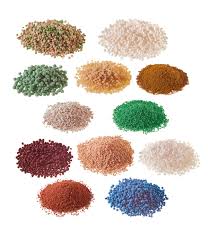
12月 . 04, 2024 11:29 Back to list
Fertilizer Analysis NPK Ratio of 20-20-20 for Optimal Plant Growth
Understanding NPK A Key to Successful Plant Growth
When it comes to gardening and agriculture, one of the most vital factors influencing plant growth is the nutrient composition of the soil. In this context, NPK is a fundamental term that stands for Nitrogen (N), Phosphorus (P), and Potassium (K). Each of these elements plays a crucial role in the health and productivity of plants. A typical ratio, such as NPK 20-20-20, signifies a balanced fertilizer containing equal parts of these essential elements. However, for the sake of this discussion, we will explore a specific formulation NPK 20-2-3, which presents a unique composition tailored for certain plant needs.
Nitrogen (N) – The Growth Booster
Nitrogen is critical for plant growth, as it is a primary component of amino acids, which are the building blocks of proteins. It plays a significant role in chlorophyll production, which is essential for photosynthesis. Without adequate nitrogen, plants may exhibit stunted growth, pale leaves, and reduced yields. In the NPK ratio of 20-2-3, with nitrogen contributing 20%, this formulation provides a robust supply of nitrogen aimed at promoting lush vegetative growth. This is particularly ideal for leafy greens and fast-growing crops that require substantial nitrogen for optimum growth.
Phosphorus (P) – The Energy Source
Phosphorus is often dubbed the “energy currency” of the plant world. This element is crucial for photosynthesis, respiration, and energy transfer in plants. It also aids in the development of roots, flowers, fruits, and seeds, making it particularly important during the flowering and fruiting stages. In the ratio of 20-2-3, phosphorus is significantly lower at 2%. This suggests that the fertilizer is designed for plants that require less phosphorus, which can prevent over-fertilization and related issues such as nutrient imbalances or toxicity that could inhibit plant growth.
Potassium (K) – The Regulator
Potassium is vital for the overall function of plants. It regulates physiological processes, such as water uptake, enzyme activation, and photosynthesis. Furthermore, potassium contributes to the plant's stress resistance, aiding in the survival of adverse conditions like drought or disease. In the formulation 20-2-3, potassium is present at 3%. Although lower than nitrogen, the potassium in this ratio is sufficient to help plants maintain cellular functions and enhance fruit quality.
npk 4 2 3

Applications of NPK 20-2-3
The NPK 20-2-3 formulation is particularly suitable for specific types of plants and growth phases. It can be ideal for crops that are in an early growth phase where vigorous leaf development is required but where excessive phosphorus may lead to nutrient problems in the soil.
For instance, vegetables such as lettuce, spinach, and other leafy greens can benefit from the high nitrogen content while avoiding an overload of phosphorus. Additionally, this ratio can be beneficial in promoting strong root systems for perennials or transplants, which might be sensitive to high phosphorus levels.
Considerations for Use
While NPK 20-2-3 can be advantageous, it is essential to test the soil before application. Soil tests can provide insights into the existing nutrient levels, guiding gardeners and farmers in making informed decisions about fertilizer application. Over-fertilizing can lead to nutrient runoff, harming the environment and plants. Moreover, understanding the specific needs of various crops can ensure that the right fertilization strategy is employed.
Conclusion
NPK fertilizers, particularly formulations such as 20-2-3, represent a vital tool in achieving optimal plant growth. Each of the components—nitrogen, phosphorus, and potassium—plays a unique and essential role in plant development. By using fertilizers judiciously and understanding their compositions, gardeners and farmers can create thriving ecosystems that yield healthy, robust plants. The careful balance of nutrients can lead to enhanced growth, better fruit and flower production, and ultimately, a more successful harvest. Thus, mastering the art of fertilization is key to unlocking nature's full potential.
-
10 10 10 Fertilizer Organic—Balanced NPK for All Plants
NewsJul.30,2025
-
Premium 10 10 10 Fertilizer Organic for Balanced Plant Growth
NewsJul.29,2025
-
Premium 10 10 10 Fertilizer Organic for Balanced Plant Growth
NewsJul.29,2025
-
Premium 10 10 10 Fertilizer Organic for Balanced Plant Growth
NewsJul.29,2025
-
50 Pound Bags of 13-13-13 Fertilizer for All Plants – Bulk & Organic Options
NewsJul.28,2025
-
High-Efficiency 15-30-15 Granular Fertilizer for Healthy Crops
NewsJul.28,2025
